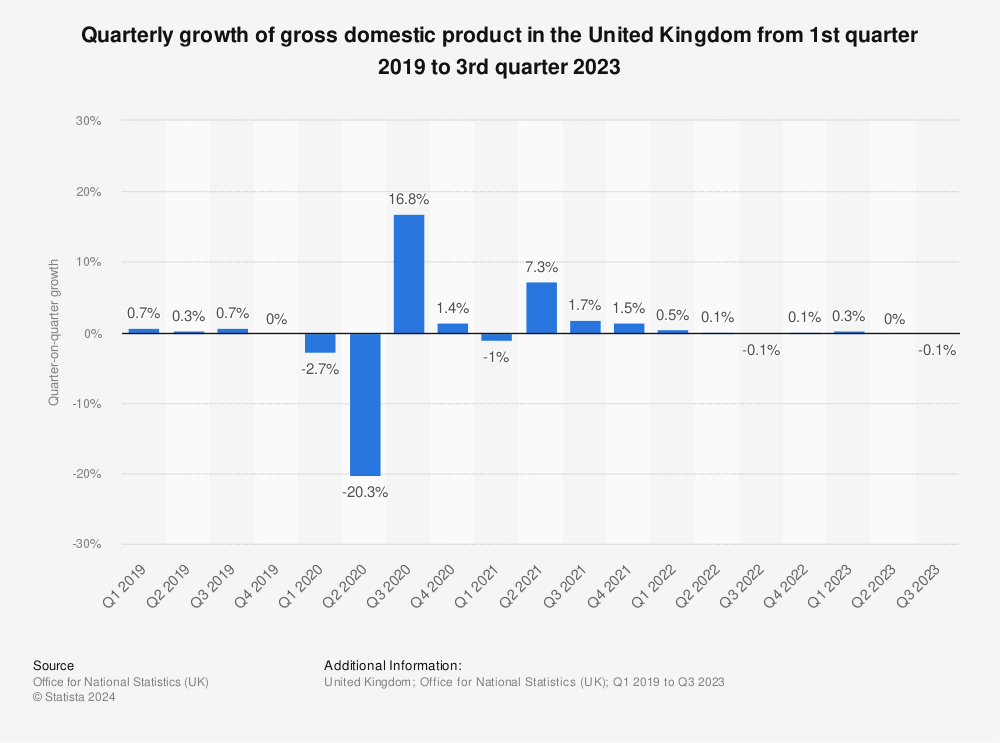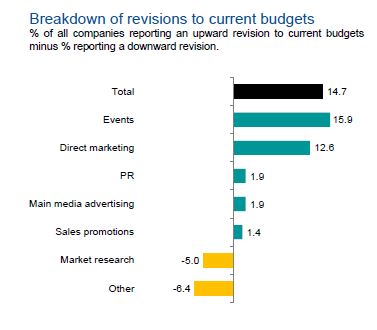Advertising and media are no longer 'bellwether' sectors

Opinion: 100% Media 0% Nonsense
The post-Covid economy is flat and stagnant, and yet media budgets are buoyant. This industry may be ‘winning the argument’, but there lies a danger within.
The link between the health of the advertising sector and the general health of the economy has been broken.
There’s no other way to describe what’s been happening over the last three years. During that time, the UK economy has been stagnating, inflation has been high, interest rates have shot up. Yet marketers’ confidence, as well as their budgets, appear to be rising too.
The general health of the economy and the general health of the industry are no longer pointing in the same direction.
The world is flat
There were some clear trends featured in last week’s IPA Bellwether report that might be due for a name change.
One is a desire by many marketers to keep spending, despite a poor economic outlook in the UK. And while this sounds like a positive — “you mean now there’s never a bad time to advertise?” — it could point to just how fundamentally weak the economy has become.
Bellwether, which surveys marketers’ confidence and media budget decisions every three months, reported an 11th consecutive quarter where marketing budgets were set to increase on balance.
At the end of last year, over a quarter said their total marketing budgets would go up — more than double the proportion making cuts (11.3%). But, if you look at what’s been happening in the UK since the shock of Covid-19, the economy has settled into a period of stagnation, with growth tethered to the zero mark.
There isn’t any recession here — just a torpid, flat line of economic activity.

At some point, the penny drops for business leaders who try to plan budgets around how consumers are likely to adjust their spending. Yes, they want to avoid spending too much when the economy is about to head into recession. But what do they do when there is an extended period of things being flat?
It seems that they’re more receptive to an argument that has gained traction in recent years.
Winning the argument
If there’s one overused quote in marketing that needs to be binned, it’s “Half the money I spend on advertising is wasted; the trouble is I don’t know which half”.
It was likely misleading when John Wanamaker said it over 100 years ago, but it’s complete nonsense today. When The Media Leader asked agency planners and buyers what explains the fact that budgets are going up despite growth being (at best) anaemic, they described a world in which marketers not only understand that investing in media helps drive sales, but that they are now better able to measure this and prove it internally.
UM London’s Adam Moreton argues “the weight of evidence has been there for quite some time” and “it seems like that advice is now being heeded”.

Perhaps he is being too modest — I’d credit media agencies for enabling their clients to prove how their media spend should be seen as an investment as opposed to a cost. The big four holding companies — WPP, Publicis Groupe, Omnicom and Interpublic — have all reported that their substantial investments in data have been a major driver of growth.
In fact, the big media agencies have become so adept at data analysis for advertisers that it’s them, not ad agencies, that are increasingly being asked to evaluate the creative effectiveness of campaigns. The founder of a specialist effectiveness vendor I spoke to last week confided that he is working with large media agencies and media owners directly.
I suspect we’ll hear more about this in the coming months as advertisers continue to demand media “works harder” — ie be more creative while being able to prove it.
Singing from the same earnings sheet
We’ll get to see very soon whether this argument is resonating as major listed companies post their Q4 earnings.
The industry analyst Brian Wieser, in his excellent Madison and Wall newsletter, previewed the Q4 earnings season by summarising advertiser activities as rapid expansion for financial services, muted among consumer goods companies, slowing down for luxury and generally positive for other sectors.
As analysts and journalists pore over what CEOs and CFOs say about their media spend in the coming days, we should take note of what they say in particular about how they are measuring and evaluating those spend decisions.
How they measure matters because, otherwise, bias will not only impact how much money is spent on media but how it is spent.
As effectiveness guru Peter Field reminded us in his searing presentation at The Future of TV Advertising Global last month, TV still remains by far the most impactful medium along with cinema, despite a long-term shift in audiences from linear to streaming and on-demand.
Field also warned broadcasters to “be careful what they wish for” as they seek to take on Google and Meta by chasing “performance” advertisers that would presumably fill ITVX and Sky AdSmart with YouTube pre-rolls and targeted response ads.
And yet, reflecting on last week’s Bellwether findings, Havas Media Network UK head of planning Jackie Lyons was struck by why “online” budgets are set to increase at more than double the rate of “video”.
“Is this all in brand-building digital or perhaps increases in short-term performance?” Lyons asks.
Storm brewing?
And that’s, frankly, the more pernicious explanation for why advertising’s status as a “bellwether” sector has never been weaker.
This industry may have become so hooked on short-termist thinking, extreme specialisation and valuing measurement over magic that it permanently erodes what made it special in the first place. That’s why I argued in a previous column that this industry would do well to fall in love again with generalists who can see the bigger media picture. It’s why VCCP Media’s Steve Taylor is calling for a return of the planner-buyer.
What matters most, despite advances in technology and measurement, is a commitment to creativity that enables marketers to build brands and form emotional connections with consumers.
Lose that and this industry is in for a stormy time. So much for bellwethers.
 Omar Oakes is editor-in-chief of The Media Leader.
Omar Oakes is editor-in-chief of The Media Leader.
‘100% Media 0% Nonsense’ is a weekly column about the state of media and advertising. Make sure you sign up to our daily newsletter to get this column in your inbox every Monday, as well as key updates with what’s happening at The Media Leader and our upcoming events.




